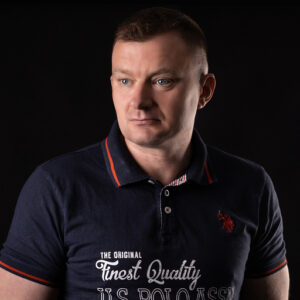Table of Contents
In this article I will describe my view on water testing. I will show you some key relationships and try to create a model of the minimum frequency of water measurements in a marine aquarium. As some of you probably know, I love automation and whenever I have the opportunity, I use automatic water testing devices that make working with the aquarium easier. This article is aimed at people who are just starting out, so I would like to cover the topic from a basic level here.
Aquarium maturation
During the maturation of the aquarium, it’s worth measuring PO4, NO3 and pH. Of course, we assume that the brine you used to flood the tank has the right parameters. If you’re not sure, it’s worth doing a full ICP test and KH measurement once, so that you know what parameter base you have for your future corals.
During maturing, one measurement per week should suffice. At the beginning, we measure PO4, NO3 and pH.
Of course, we can save the measurements on paper, but I highly recommend using the free Smart Reef application and its professional parameter panel, in which you can not only add parameters, but also receive hints on how to run a marine aquarium.
Read this article if you’d like to find out more about the app.
During the maturation of the aquarium, PO4 and NO3 will first increase and then begin to decrease. By doing tests once a week, we can see changes and we can read from the parameters when the aquarium is mature. The pH should stabilize and be above 8 during the day. Ideally, it should reach 8.3-8.4.
Why do an ICP test during aquarium maturation? After the maturation period, we want to populate the tank with animals. It’s worth knowing whether there are any problems in the water in the form of exceedances and what is the level of macro and microelements. Before adding animals, we bring the water to an ideal state. If we are sure about the quality of the water, we can skip this step, although I personally do not recommend skipping it, as I believe that it’s better to act precisely than to rely on guesswork.
Mature aquarium
The frequency of measurements in a mature aquarium depends primarily on the type of corals we have in the tank.
We will do less testing if we have soft corals in the aquarium, and if we keep SPS corals, especially acropora, we should do tests more often.
Another dependence is what’s happening in the aquarium. It’s known that if we see a problem in the aquarium, we immediately perform a set of tests, including ICP.
Now let’s analyze a usual situation for two types of tanks
- Soft corals + LPS
- SPS dominated
Of course, we must remember that when creating a parameter study model, we consider a stable reservoir. If something disturbing is happening in the tank, then the tests should be carried out much more often. Ideally, we’ll have a testing machine set up that will immediately alert us if the stability of the water is disturbed.
| Aquarium with soft corals + LPS | SPS dominated aquarium | |
| Test type | Frequency | Frequency |
| KH | 2 x per week | 3 x a day |
| Ca | 1 x per week | 1 x a day |
| Mg | 1 x per week | 1 x a day |
| PO4 | 2 x per week | 1 x a day |
| NO3 | 1 x per week | 1 x a day |
| pH | 2 x per week | Continuously (using a dedicated device) |
| ICP-OES | 1 x per month | 1 x per mont |
| Salinity | 1 x per week (when doing water changes) | 1 x per week (when doing water changes) |
| Temperature | Continuously (using a dedicated device) | Continuously (ideally, set alarms in the device) |
The tables present recommendations for the minimum number of measurements for the two most popular types of aquariums. In the second example, I recommended pH measurement in continuous mode, because pH has a large daily variability and in case of problems, it’s worth checking the history of this parameter. For temperature, I recommend a solution with a temperature alarm. SPSs, and especially acroporas, do not like change. It’s worth, on the one hand, to monitor the parameters, and on the other hand, especially with the temperature, to have an alarm set. If the heater is damaged or it is too hot, we will receive an alert and save the tank.
About the author

Marek Protasewicz
Reefkeeping has been my passion for over 10 years now. I love learning. The hobby has taught me many valuable lessons, patience being the best example. Combining work and passion is my path. I run Crazy Coral, a marine aquarium shop, for a number of years. Building this business from the scratch I learnt from my own mistakes at a heavy cost.
Later I managed a project aimed at development of methods for quick growth of Corals in non-natural conditions. The project was carried out by Get Sales, Poland. Presently, I am responsible for distribution strategy at Reef Factory, of which I am a co-founder. The company produces smart devices for marine aquaristics. The last projects I have been involved in are Social Reef and ReefPedia.



